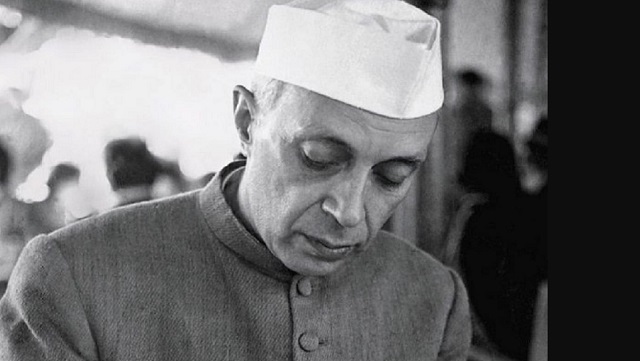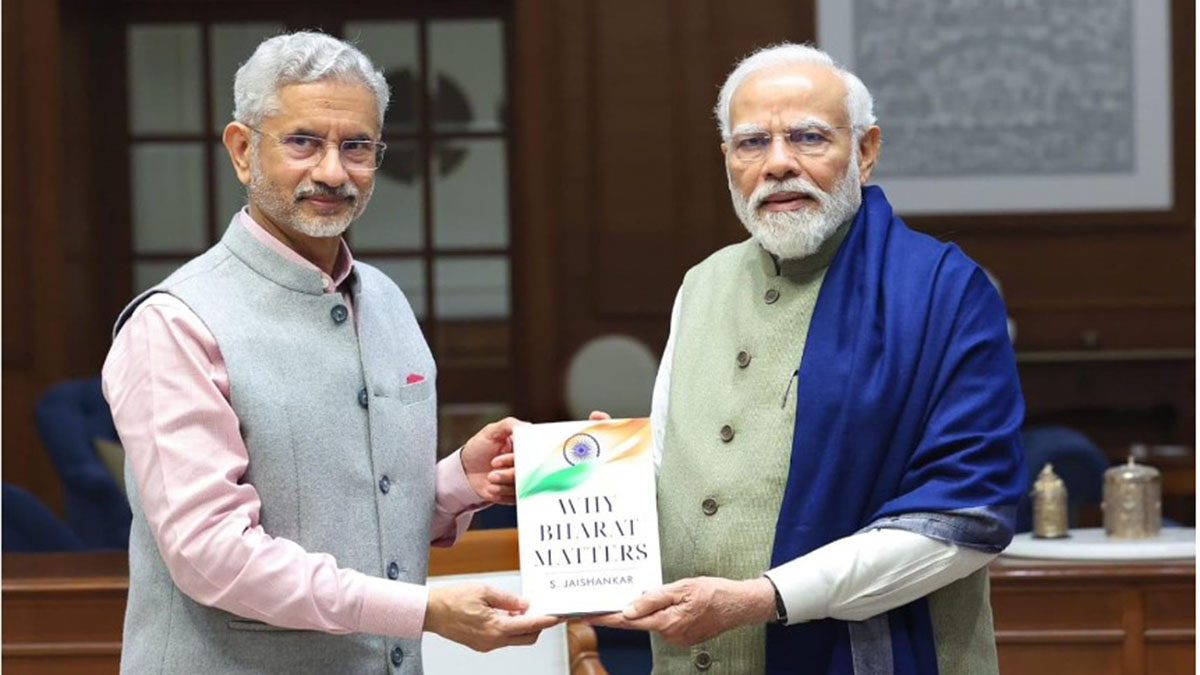On Independence Day, a televised press conference of Jawaharlal Nehru in the UK in the 1950s took the internet by storm. It was shared on WhatsApp groups, evoking both admiration and contempt.
Here was a suave Nehru, speaking with a clipped accent and with a hint of a gracious smile. He fielded questions with poise.
Nehru is a much maligned man decades after his death. And attempts are often made by his admirers, generally highly educated people, to correct public perception about him. However, this is a failed project.
He may have built quite a few of our national institutions from scratch, but Nehru is in today’s national common sense the other of substantive democracy. He is seen as someone who exuded upper class grooming more than anyone else.
His pedigree, his good looks, his “high” caste background, his impeccable English, his flair for writing and, finally, his becoming prime minister and laying the foundation of many institutions makes him a symbol of the old establishment.
He is a victim of a surge from below, much like his mentor Gandhi was a beneficiary of the love of the masses, who instinctively identified with the cultural imagery of a loin cloth, the Ashram and the Ram Dhun that he sang.
The ways of democracy are strange. The sense of justice of the masses is also very different from that of the typical social science intellectual. The two are situated galaxies apart.
Over the decades post-Independence, democracy deepened and the masses entered history in the fullest sense.
Each feeling of exclusion from power, cultural capital and wealth was blamed on the nebulous thing called the establishment, a vague feeling of anger against which gave Hindi cinema the symbol of the Angry Young Man in Amitabh Bachchan decades back.
With social media, the ‘massification’ of the public sphere is complete. Nehru is the tallest symbol of the old order, which people believe did not allow ‘real’ democracy to flourish.
For intellectuals today, Nehru signifies institutions that guard democracy. For the masses, institutions guard the elites.
Both are correct in their own ways. If one knows how to access institutions, they are protectors. For those who can’t access them for want of networks, even a visit to the police station to file a complaint is a humiliating experience.
It is in this strange manner that the masses see Nehru today. The photographs of Nehru in the company of women, some of them his relatives or family friends, trigger bitterness and anger.
Whether the Opposition likes it or not, Nehru exudes privilege, when seen from the lens of the common people. It doesn’t matter if academics and journalists often see him as someone who was a socialist and a critic of princely states.
Common people make sense of the social world more from form than content. For them, Gandhi, the son of the Diwan of Porbandar, is a fakir, because of his average looks and ascetic living. For them, Nehru is a privilege personified.
Ram Manohar Lohia once said that English is a problem because a youngster who does not know English feels a sense of inadequacy in front of someone with a clipped accent, something that isn’t good for democracy. He was spot on: the very persona of Nehru evokes anger and a sense of being left out in common people.
Why was this not true in Nehru’s own lifetime? One, because of the freedom struggle. Two, because he was Gandhi’s heir. Three, people knew that he had gone to jail for India. Four, the maai baap culture had not entirely died in the early decades of independence.
Now, democracy has deepened. The common people are more non-conformist and hate privilege in a very primal manner.
The fact that Nehru’s descendants continued to become prime ministers deepens the sense of bitterness with him. This is at the core of the ridicule that Rahul Gandhi is subjected to.
In many ways, the popularity of Narendra Modi is because he is seen as the anti-thesis of Nehru. He comes from a humble background, has projected himself as an outsider to the establishment, speaks Hindi and is weak in English, comes from a backward caste, and because of all this becomes in the eyes of common people the rebel standing against the old establishment. And that he is a victorious rebel – the discourse of the revolutionary is always a tantalising one – adds to the aura, which then results in another victory.
In a Hegelian sense, if Nehru is thesis, Modi is anti-thesis. Can the Opposition work out a synthesis? For that, it will have to sense what is happening. No evoking of Nehru will help. No projection of Rahul Gandhi will help.
The Congress is perhaps no longer suited for the project. It has failed to think beyond the Nehru-Gandhi family. And as the culture of high command grew from the times of Indira Gandhi, Congress workers focused on Nehru and ignored leaders like Sardar Vallabhbhai Patel, Lokmanya Tilak and Rajendra Prasad. This has allowed the BJP to claim these towering figures one after the other, starting from Patel himself.
It will be difficult for the Congress to reverse this.
In hindsight — though it is easy to be wise in hindsight — the exclusive projection of Nehru to please the Nehru-Gandhi family was a mistake of Congress workers and leaders. And the projection of Nehru as an internationalist was a mistake that many intellectuals made. It made people sever from their collective memory Nehru as an illustrious son of Bharat. He ended up representing internationalism alone.
Projecting the legacy of Patel would have been smarter. As for Nehru, the Congress should have remembered him as a privileged man who de-classed himself to plunge himself into the freedom struggle and as someone who had a sense of humility and love towards Indian civilisation.
Vikas Pathak is a columnist and media educator. The views expressed are personal.
Read all the Latest News , Trending News , Cricket News , Bollywood News , India News and Entertainment News here. Follow us on Facebook , Twitter and Instagram .
)
)
)
)
)